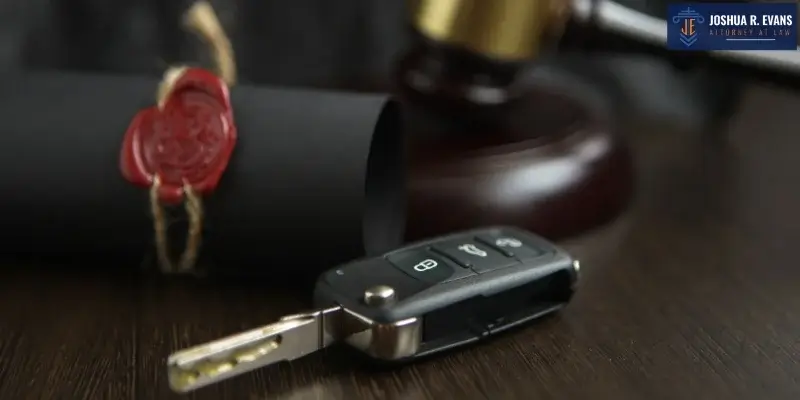have questions?
get a free case review
” * ” indicates required fields
"*" indicates required fields

Being involved in a car accident can occur even when you drive cautiously on the road. A car accident can be a traumatic situation, and it can be helpful to know the Illinois car accident laws and statute of limitations so you can better take the right steps after a car accident and protect your interests.
There are several requirements after an initial collision. In the event of a car accident in Illinois, all drivers involved are required to stop if any person is injured or killed. Drivers must also stop for collisions causing only property damage, whether a person was in the car or not. Drivers must remain at the scene until the appropriate information is given.
Those involved in an accident are required to provide contact information, information about their vehicle, and insurance information. Individuals have a duty to provide aid to those injured in the accident.
Drivers also have a duty to report the accident if there is not already a police officer on the scene, by the fastest method of communication available. If the driver is unable to report the accident, then any passenger in the vehicle has the same responsibility.
Drivers in the state are required to have minimum insurance coverage. This insurance covers the injuries and other damages of others in an accident that the driver caused. The minimum requirements are:
If a driver doesn’t carry the minimum insurance, they can face significant fines.
Illinois is a fault-based state for car accidents. If you are in a car accident that was not your fault, you must prove that another party is at fault. A driver does not have to have intended to cause an accident to be considered at fault. Negligent actions, such as driving distracted or ignoring road laws, if they cause the accident, can mean a driver is at fault. You can recover the cost of your damages by filing with the insurance provider of the at-fault driver.
If fault in the accident is contested, the case may have to go to trial to resolve the claim.
Illinois is a modified comparative negligence state. This means that even if you are partially at fault for the accident, you may still be eligible for damages. As long as your percentage fault is 50% or less, you can still recover a portion of the damages you suffered in the accident.
The statute of limitations is a deadline applied to personal injury and other civil claims, which requires individuals to file claims before the statute of limitations expires. There are some exceptions to this deadline, but generally, if you miss the statute of limitations, you are unable to reclaim damages in a civil claim.
The Illinois statute of limitations for personal injury claims is two years from the date the accident occurred. For property damage claims, the deadline is five years from the accident. These deadlines are important to keep in mind while negotiating a car insurance claim.
If the insurance provider will not give you a fair settlement, you can take the claim to court to recover damages. If the deadline expires, you may end up with no settlement. Without the threat of a civil claim, the insurer will likely end negotiations.
The earlier you get in contact with a skilled car accident lawyer, the more time your attorney has to gather evidence and craft a strong claim. It also gives them more time to negotiate a fair settlement.
A: After a car accident, you have a two-year limit on which you can sue. You should file an insurance claim as soon as possible after an accident, or it may harm your claim. The statute of limitations applies to civil personal injury claims, which you may need to file if the insurance company is refusing to provide a fair settlement. If you don’t file your civil claim within two years, you cannot recover compensation from the court.
A: You should file a police report as soon as possible after a car accident in Illinois. When a police officer responds to the scene of the accident, they must file an accident report within 10 days. If there is no officer on the scene, individuals in the accident should make a report in that same timeframe. There may be other requirements, depending on the severity of the accident and the location of the accident. An attorney can help ensure you meet these obligations.
A: How long an insurance company has to settle a car accident claim in Illinois can vary, although it must typically be within a reasonable period of time. Some insurance settlements are resolved quickly, while others take significant negotiations.
If the injury claim is approved, the insurance company must pay the claim within 30 days, and provide an explanation for any delays and why they are reasonable. If an insurance provider is unreasonably delaying a solution or a settlement, your attorney can help you with the next steps.
A: No, it is not a no-fault state for car accidents. While there are options for covering your damages with your own insurance, car insurance claims are typically filed with the insurer of the at-fault driver. If you are able to prove another driver is entirely at-fault for the accident, they are liable for your damages caused by the accident. This includes medical costs, lost income, and property damages.
It can be stressful to comprehend and follow all the legal requirements after a car accident, and it is even more difficult when you are injured. Working with legal representation can limit these stressors and provide many benefits for your insurance claim. The team with Joshua R. Evans, Attorney at Law, can bring compassionate and skilled advocacy after your car accident. Contact our firm today.
” * ” indicates required fields
"*" indicates required fields